Hungarian Panorama
If I wanted to find a common trait in this year’s Hungarian program, I would – somewhat tentatively - say that it is hope. Tentatively, because when I started selecting the films their quality was my priority, and yet, when I stood back to take a look at the final list, it was not what I had expected. Human suffering has not decreased around the globe, especially not in Hungary, and it keeps growing everywhere. Yet the creators of these poignant films and stories seem to know that hope has to be evoked when it seems the most lost.
Here and now, for example.
Art represents hope for the mentally challenged young actors in Wonderful Gladiators as well as for the amateur prison actors in The Iron Curtain; in Invisible Strings the talented Pusker sisters, as Fellini put it, cling to music while the devoted teacher in There Was Once… passionately researches the history of the Jews in Kalocsa and believes that truth must be revealed at any price. In Motalko, the story of the petrol station and the family around it proves that regimes come and go but some things can be permanent … even a petrol station. Finally, the protagonists of Caught Between Two Worlds come from corners of the Third World from where even our helplessly drifting country looks like the promised land.
These films, like all good documentaries, do not merely grasp situations but show us the people who struggle tirelessly, caught in the whirlpool if circumstances. People who often have nothing left but their hope, which however no power can take away.
György Báron
Viktor Oszkár Nagy / Hungary / 2010 / 67 min / Arabic & English & French & Georgian & Russian & Somali
Four cultures, four stories, four fights, and a chance for a fresh start in a foreign country - everyday life in a Hungarian refugee camp.
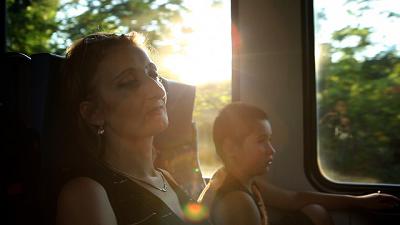
producer: Sára László, Marcell Gergő
editor: Péter Sass
camera: Rudolf Péter Kiss
sound: Péter Benjamin Lukács
music: Hildur Gudnadottir, Salif Keita
production info:
Campfilm Production
Károly krt. 3/c
1075 Budapest, Hungary
sara@campfilm.eu
tel.: + 36 20 922 2655
selected filmography
3 Esküvő (2009) / Hajónapló (2009) / Apaföld (2008) / A vizsga (2006) / A Tárca (2005)
Klára Trencsényi / Hungary / 2011 / 39 min / Hungarian
What is left of the atmosphere of the famous Corvin promenade in Budapest after the city rehabilitation project? Locals talk about the old and new face of the area.
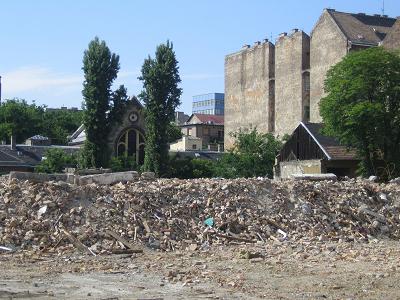
producer: András Muhi, Inforg Stúdió
editor: Bence Bartos, Ági Mógor
camera: Klára Trencsényi
sound: Rudolf Várhegyi, 4Cut
music: Hanna Honthy, Miklós Preiszner
production info:
Inforg Stúdió
1092. Bp. Kinizsi u. 11.
tel.: +36 203 194 448
klaritat@yahoo.com
filmography
Bird’s Way (2009) / 3Weddings – Elena & Leo (2009) / A Chance (2007)
Ágnes Sós / 2010 / Hungary / 70 min / Hungarian
If your greatest rival were the person who you loved the most how would you break free from her shadow? A film about family, love and music.

producer: Marc B. Lorber, Dorota Roszkowska, György Czutor
editor: Thomas Ernst
camera: Ágnes Sós, András Petróczy, Károly Markert
sound: Gábor Császár
music: Attila Reményi
production info:
HBO Holding Zrt.
Riadó u.5.
1026 Budapest, Hungary
Eva.koteles@hbo.hu
tel.: + 36 1 372-3700
selected filmography
Őrült szerelem ez (2009) / A Dobópápa (2007) / Akartam volna mutatni (2006) / Hangköz (2005) / Magamról röviden csak annyit… (Ferenczi Gáborral) (2002) / Kitoloncoltak (Ferenczi Gáborral) (1993)
Glória Halász / 2011 / Hungary / 69 min / Hungarian
A dedicated volunteer and an enthusiastic group of prisoners find trust and creativity in theater.
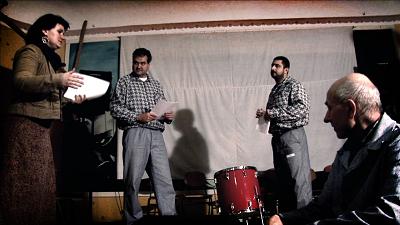
producer: Glória Halász
editor: Dávid Reisinger
camera: Dávid Reisinger
sound: Szilárd Horváth
music: Albert Márkos, Hunor G. Szabó
production info:
Beertok Kft.
Balzac u. 35.
1136 Budapest, Hungary
vasfuggonyfilm@gmail.com
tel.: +36 70 635 28 03
selected filmography
Mari néni (2010) / Performance (2007) / KifestŐ (2006) / Sirály (2004)
Attila Kékesi / Hungary / 2010 / 32 / Hungarian
The chronicle of a gas station and its persevering owner surviving WWII, the communist regime, and its fall in Hungary.
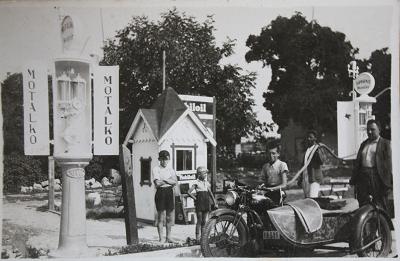
producer: Miklós Havas
editor: Attila Kékesi
camera: Rudolf Péter Kiss
sound: Miklós Havas
music: Ferenc Darvas
production info:
HB Production
Naphegy u. 38.
1016 Budapest, Hungary
habanamedia@gmail.com
tel: + 36 30 375 4486
selected filmography
A forradalom arca – Egy pesti lány nyomában (2006) / Béke poraikra (2004) / Vargabetű (2002) / A kor szelleme (1998) / Hajni (1994)
Gábor Kálmán / Hungary / 2011 / 103 min / Hungarian
Gyöngyi Magó, a teacher and a devoted researcher, uncovers the history of a once prosperous Jewish community and a forgotten chapter in the history of the town of Kalocsa.
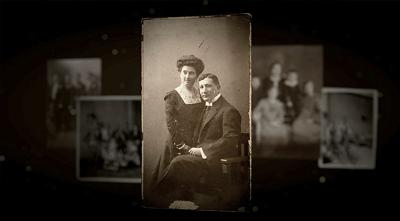
producer: Gábor Garami, Gábor Kálmán
editor: Kate Amend
camera: Zsolt Tóth, Jon Dunham
sound: Joe Milner
music: Mark So
production info:
Cinema-Film, Gabor Kalman Productions
Gyarmat u. 36.
1145 Bp., Hungary
garamai@cinemafilm.hu
tel.: + 36 1 252-0078
selected filmography
Tizenöt francia építész Los Angelesben (2000) / Fordulópontok (sorozat) (1998) / Pályaválasztás (1986)
Szekeres Csaba / Hungary / 2010 / 75 / Hungarian
Unemployment and despair in the Roma community of Told – the whirlpool of poverty and the feeble hopes of breaking out.
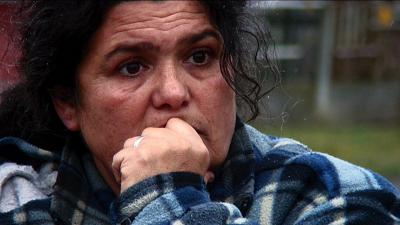
producer: Pál Sándor, John M. Oates
editor: Sándor Kiss
camera: Csaba Szekeres
sound: László Zalányi
music: Jan Volsy – Miniatures
production info:
Hunnia Filmstúdió Kft.
koprodukciós partner: The Open University (UK)
Róna u. 174.
1145 Budapest, Hungary
hunnia@hunniafilm.hu
tel: +36 1 221 1815
selected filmography
Nexus (2008) / Zozo (2006) / Ablak a múltra (2005) / Mami, blue – (2003) / Emberek – Homo provincialis (2002)
Zsófi Kabarcz / Hungary / 2011 / 52 min / Hungarian
A film about the Baltazar Theatre - a unique professional theatre company in Hungary whose members are mentally challenged actors and actresses.
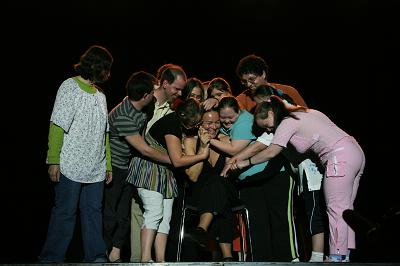
producer: Panna Boros, Marc B. Lorber
editor: Judit Feszt
camera: Gergő Somogyvári, Marcell Rév, Róbert Patócs, Gábor Tausz, Attila Tóth, Márton Vízkelety
sound: Béla Novák, Zoltán Vass, Ferenc Gerendai
music: Frenk & Szusza
production info
New Angle Team
Retek u. 32.
1024 Budapest, Hungary
panna@newangle.hu
tel.: + 36 30 396 6089
filmography
Birobidjan (Boros Pannával és Katz Dáviddal) (2008)